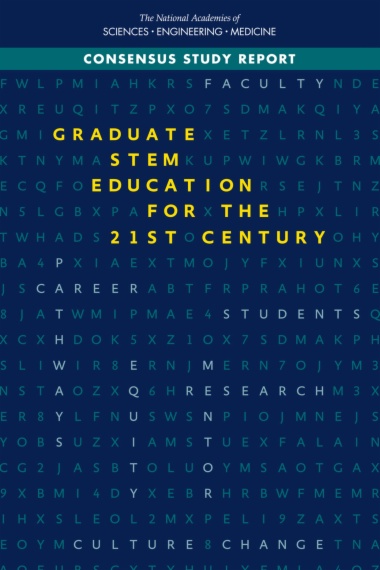

The U.S. system of graduate education in science, technology, engineering, and mathematics (STEM) has served the nation and its science and engineering enterprise extremely well. Over the course of their education, graduate students become involved in advancing the frontiers of discovery, as well as in making significant contributions to the growth of the U.S. economy, its national security, and the health and well-being of its people. However, continuous, dramatic innovations in research methods and technologies, changes in the nature and availability of work, shifts in demographics, and expansions in the scope of occupations needing STEM expertise raise questions about how well the current STEM graduate education system is meeting the full array of 21st century needs. Indeed, recent surveys of employers and graduates and studies of graduate education suggest that many graduate programs do not adequately prepare students to translate their knowledge into impact in multiple careers.
Graduate STEM Education for the 21st Century examines the current state of U.S. graduate STEM education. This report explores how the system might best respond to ongoing developments in the conduct of research on evidence-based teaching practices and in the needs and interests of its students and the broader society it seeks to serve. This will be an essential resource for the primary stakeholders in the U.S. STEM enterprise, including federal and state policymakers, public and private funders, institutions of higher education, their administrators and faculty, leaders in business and industry, and the students the system is intended to educate.